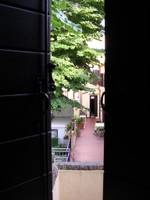
About the Catholica
Previous Posts
Toscana and the Refuges of LightThe Anti-Narnia
Ballad of the White Horse
Red and Black (at the OCP Cafe)
Dvorâk
Polyphonic Bliss
Best. Motet. Ever.
Syndication

News
Seattle CatholicCatholic Exchange
Crunchy Catholicism
Being CatholicCaelum Et Terra
Mystical Rose Herbals
Mary Gardens
Tridentine Tiramisú

St-Martin de Bréthencourt
Chartres Pilgrimage
(muchas fotos!)
Campos Photos
LMSEW Photos
Catholic Artists Today

Official Passion Site
Smallpax Guild
Nicholas Wilton Music
StudiObrien
Via Rosa Rosaries
Regina Doman
Poetry of Pavel Chichikov
Free Literature On the Web

Project Gutenberg
G.K. Chesterton
On Nothing
On Something
First and Last
Europe and the Faith
Belloc - Poetry
More Belloc Poetry
John Henry Newman
Christopher Dawson
Frederico GarcÃa Lorca
Tolkien

Romantic &
Imaginative Theology
Council of Elrond
Anke Eissmann's Art
Angels and Elves
Christianity and Middle Earth
Coulombe Essays
Ardalambion
Gwaith i Pheddain
Arthrand Board
Crazy-Go-Nuts
Homestar RunnerStrindberg & Helium
SuperPope Anime
The Onion Dome
Blogs I Like

Alle Psalite
Andrew Cusack
Angry Twins
Cacciaguida
Church of the Masses
Curt Jester
Dappled Things
Devout Life
Dignare Me Laudare Te
Erik's Rants & Recipes
Flos Carmeli
Give Tongue
Hallowed Ground
The Idyllist
Inn at the End of the World
Jade's Trick
Jelly-Pinched Theatre
Old Oligarch
Open Book
Orthonormal Basis
Sancta Sanctis
Secret Agent Man
Shrine of the Holy Whapping
Video Meliora
Vivid
The Western Confucian
Zadok the Roman
Christendom Blogs
Charlemagne's PalaceThe Christendom Commons
Meet Virginia
Destination: Order
Enchiridion
Fiddleback Fever
JulesArts
Midnight Radio
Nota Bene
¿Qué?
somewhatlost
This Red Rock
West of the Moon
Vestal Morons
Zucchero
<< # St. Blog's Parish ? >>

Archives
- April 2004
- May 2004
- June 2004
- July 2004
- August 2004
- September 2004
- October 2004
- November 2004
- December 2004
- January 2005
- February 2005
- March 2005
- April 2005
- May 2005
- June 2005
- July 2005
- August 2005
- September 2005
- October 2005
- November 2005
- December 2005
- January 2006
- February 2006
- March 2006
- April 2006
- May 2006
- June 2006
- August 2006
- September 2006
- January 2007
- February 2007
- July 2007
Kiss me, I'm Catholic.
Monday, August 07, 2006
The Art of Triolets
Your triolet should glimmer
Like a butterfly;
In golden light, or dimmer,
Your triolet should glimmer,
Tremble, turn, and shimmer,
Flash, and flutter by;
Your triolet should glimmer
Like a butterfly.
-Don Marquis
Sheila has announced the results of her triolet contest. The submissions were fantastic, exhibiting wit, color, and metrical grace (which is VERY important. See above poem.) As I read and wrote more triolets, I began to notice more and more complexities in the form, and I started to write a little triolet primer in my head. These are some of my observations.
As forms go, triolets are peachy: easy to write, but capable of depth; more dignified than limericks, but lighter than sonnets. They are ideal for conveying sweet nothings (or somethings...) to one's beloved, but as Sheila's contest has proved, the triolet is afraid of nothing! Though it may be impossible to write a triolet without any humor in it. Once I did write a ghastly triolet which teetered on the edge of nihilism, but I will spare you the sight. Besides, it wasn't a real triolet. Anyhow, when you start a triolet, you are already half done. If I write
The Berkley sunshine rarely smiles,
But my, it's shining bright today!
then I already have the outline of the poem:
The Berkley sunshine rarely smiles,
But my, it's shining bright today!
*
The Berkeley sunshine rarely smiles
*
*
The Berkley sunshine rarely smiles,
But my, it's shining bright today!
I am left with only three spaces. This requires me to be something of a contortionist. The rhyme scheme tightens things further: The first couplet I make up ends ab--and a and b are all I get for the whole poem; 5 a-rhymes and 3 b-rhymes. The first two lines determine your rhyme scheme, and they form your poem's ending. (This is what T.S. Eliot was talking about when he said, "In my beginning is my end." You know how much he loved to write triolets...) Thus, the first two lines of your triolet are the most important, structurally speaking.
But the real fun is in the remaining three lines. This is where you can introduce your Ogden Nash-style rhymes, your pungency or poignancy, and all the various twists and turns of alliteration and internal rhyme and such. The last line before the repetition of the opening can become the triolet's punchline, or it can do something subtler... it is a useful point to center the triolet around. Look at this one of Chesterton's:
If I were a fish I should
Miss occasional luxury
Such as climbing in the wood
(If I were a fish I should)
Church-going is also good
Mostly I should miss the sea
If I were a fish I should
Miss occasional luxury.
"Mostly I should miss the sea." This line is unexpected and funny, yet somehow also sonorous and wistful. It makes the poem. But notice that Chesterton commits an infelicity that is common in triolets: His opening couplet is constructed so that the first line can't do anything logical when it is repeated in the fourth line, and Chesterton can only put it in parentheses as a sort of echo. To avoid this, you can either make the first line a complete statement, or make it a dependent clause capable of connecting with the lines before or after it. Actually, you should always connect it if you can. Here is a good example:
In the school of coquettes
Madam Rose is a scholar.
They fish with all nets
In the school of coquettes:
When her brooch she forgets
Tis to show a new collar.
In the school of coquettes
Madam Rose is a scholar.
Ah, the Rose triolets! They were the first triolets I ever read. Here are two more:
Rose kissed me to-day.
Will she kiss me tomorrow?
Let it be as it may,
Rose kissed me today.
But the pleasure gives way
To a savour of sorrow;-
Rose kissed me to-day,-
Will she kiss me tomorrow?
I intended an Ode,
And it turned to a Sonnet.
It began à la mode,
I intended an Ode;
But Rose cross'd the road
In her latest new bonnet;
I intended an Ode;
And it turned to a Sonnet.
While I was searching for these triolets, I stumbled onto a little exchange on a U. of Chicago mailing list. It involved communism, molecular theory and triolets, and contained this gem:
I love triolets because they are both pleasant and safe to use. Authors of triolets are responsible for fewer than 15% of this year's violent deaths, and have started fewer wars than authors of odes, rondeaus, sonnets and blank verse combined. Other forms (or lacks thereof) are quite different: to paraphrase Thomas Pynchon, the only thing you feel like doing after hearing something of Wallace Stevens' is going out and invading Poland.
In fact, recent archival research has revealed that no less a figure than the anti-scholastic Sir Francis Bacon himself is believed to have authored over a dozen heretofore anonymous triolets. And Francois Hotman attributes Henry of Navarre's early victories over Guises' armies to a flaming triolet that appeared in the sky above the battlements of La Rochelle. "In haec forma, vinces!" Henry is reputed to have said, in French. So before you go about criticizing the triolet, Matt, you ought to do your homework.
So much for the triolet. But before I go, I want to say that Kevin's "The Latin on the keyboard coded" reminded me of Tantum ergo Sacramentum (terrible I know), and that Charlemagne's "The Buzzard" is practically perfect in every way (and reminiscent of The Bad Child's Book of Beasts), and that I'm still in love with "At ChesterCon I met some friends."
And finally: Sheila, I found a triolet by Sara Teasdale that I think you'll like:
Written in a copy of "The Poems of Sappho":
Beyond the dim Hesperides,
The girl who sang them long ago
Could never dream that over seas,
Beyond the dim Hesperides,
The wind would blow such songs as these --
I wonder now if she can know,
Beyond the dim Hesperides,
The girl who sang them long ago?

